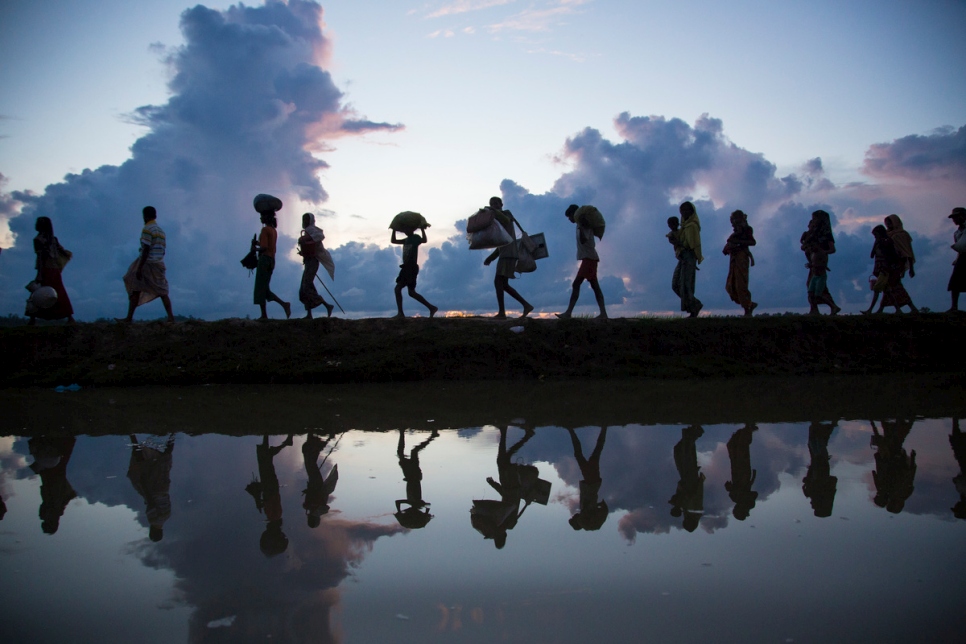Asylum and Migration
Unregulated migration is not safe. What is more, it can strain the integrity of asylum systems and fuel public hostility towards all foreign nationals, regardless of their legal status. It can also lead to restrictive border controls which may fail to address the rights and needs of persons on the move, including refugees’ right to seek international protection, and which may result in refoulement or human rights violations.
UNHCR therefore strives to engage with migration issues that affect refugees and other persons under its mandate, including asylum-seekers, internally displaced people and stateless people. In certain circumstances, the General Assembly has asked UNHCR to contribute its expertise to processes that relate to migration.
With this in mind, UNHCR focusses broadly on:
- Seeking to ensure that migration-management policies, practices and debates take into account the particular protection needs of asylum-seekers, refugees and stateless people, and acknowledge the legal framework that exists to meet those needs;
- Assisting States and partners to meet asylum and migration-management challenges in a manner that is sensitive to protection concerns;
- Identifying migration, trafficking and related developments impacting on persons under UNHCR’s mandate, and
- Supporting stronger governance and closer observance of the universal character of human rights, including the rights of all persons on the move, regardless of their legal status, in ways that reinforce the principles and practice of international refugee protection.
To support these aims, UNHCR collects and analyses data and trends, develops policy and guidance, implements programmes and provides operational support to governments and other stakeholders on mixed movements and related issues such as trafficking in persons and protection at sea.
Refugee or Migrant?
Refugees are people who cannot return to their country of origin because of a well-founded fear of persecution, conflict, violence, or other circumstances that have seriously disturbed public order, and who, as a result, require international protection.
The tendency to conflate refugees and migrants, or to refer to refugees as a subcategory of migrants, can have serious consequences for the lives and safety of people fleeing persecution or conflict.
Without question, all people who move between countries deserve full respect for their human rights and human dignity. However, refugees are a specifically defined and protected group in international law, because the situation in their country of origin makes it impossible for them to go home. Calling them by another name can put their lives and safety in jeopardy.
The important distinction between refugees and migrants was acknowledged by the UN General Assembly in New York Declaration for Refugees and Migrants.
Relevant UNHCR documents on terminology include:

